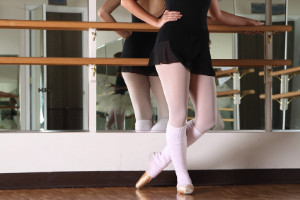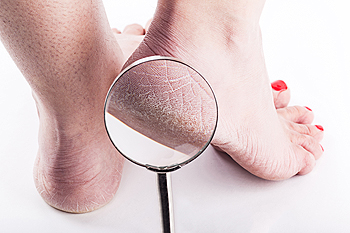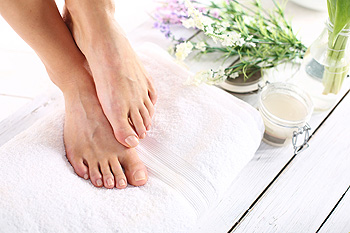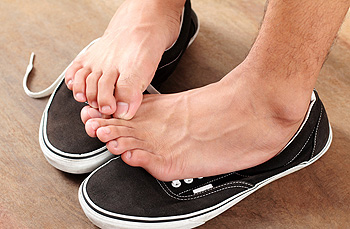March 2020
Why Are My Feet Swollen During My Pregnancy?
 Many pregnant women are aware of the changes that happen to their feet and ankles. This is generally a result of increased blood volume, and additional weight that is caused by the growing baby. The feet and ankles may become swollen, which is why it may be beneficial for women to purchase larger shoes. Mild relief may be found when the legs are elevated, and it may help to limit the amount of time walking and standing throughout the day. Additionally, it may be beneficial to drink plenty of water daily, and to place a cold compress on your ankles. If you are afflicted with swollen ankles and feet during your pregnancy, it is strongly suggested that you seek the counsel of a podiatrist who can address any foot concerns you may have.
Many pregnant women are aware of the changes that happen to their feet and ankles. This is generally a result of increased blood volume, and additional weight that is caused by the growing baby. The feet and ankles may become swollen, which is why it may be beneficial for women to purchase larger shoes. Mild relief may be found when the legs are elevated, and it may help to limit the amount of time walking and standing throughout the day. Additionally, it may be beneficial to drink plenty of water daily, and to place a cold compress on your ankles. If you are afflicted with swollen ankles and feet during your pregnancy, it is strongly suggested that you seek the counsel of a podiatrist who can address any foot concerns you may have.
Pregnant women with swollen feet can be treated with a variety of different methods that are readily available. For more information about other cures for swollen feet during pregnancy, consult with Dr. Lee R. Stein from Lake Shore Foot & Ankle, PC. Our doctor will attend to all of your foot and ankle needs.
What Foot Problems Can Arise During Pregnancy?
One problem that can occur is overpronation, which occurs when the arch of the foot flattens and tends to roll inward. This can cause pain and discomfort in your heels while you’re walking or even just standing up, trying to support your baby.
Another problem is edema, or swelling in the extremities. This often affects the feet during pregnancy but tends to occur in the later stages.
How Can I Keep My Feet Healthy During Pregnancy?
- Wearing orthotics can provide extra support for the feet and help distribute weight evenly
- Minimize the amount of time spent walking barefoot
- Wear shoes with good arch support
- Wear shoes that allow for good circulation to the feet
- Elevate feet if you experience swelling
- Massage your feet
- Get regular, light exercise, such as walking, to promote blood circulation to the feet
If you have any questions please feel free to contact one of our offices located in Chicago, Highland Park, and Uptown, IL . We offer the newest diagnostic and treatment technologies for all your foot and ankle needs.
Ballet Dancers and Stress Fractures
 A hairline crack in the bones of the foot is generally considered to be a stress fracture. This can be a common ailment among ballet dancers, and may heal faster when it is diagnosed early. Stress fractures may happen as a result of performing dances that have repeated jumping and running routines, however, stress fractures may not be immediately recognized. There can be existing conditions which can significantly increase the possibility of developing a stress fracture. These can include having flat feet or excessively high arches. Additionally, wearing shoes that do not fit correctly, or dancing for several hours at a time, may lead to a stress fracture. If you feel you have this condition, please consult with a podiatrist who can help you to manage this ailment.
A hairline crack in the bones of the foot is generally considered to be a stress fracture. This can be a common ailment among ballet dancers, and may heal faster when it is diagnosed early. Stress fractures may happen as a result of performing dances that have repeated jumping and running routines, however, stress fractures may not be immediately recognized. There can be existing conditions which can significantly increase the possibility of developing a stress fracture. These can include having flat feet or excessively high arches. Additionally, wearing shoes that do not fit correctly, or dancing for several hours at a time, may lead to a stress fracture. If you feel you have this condition, please consult with a podiatrist who can help you to manage this ailment.
Stress fractures occur when there is a tiny crack within a bone. To learn more, contact Dr. Lee R. Stein from Lake Shore Foot & Ankle, PC. Our doctor can provide the care you need to keep you pain free and on your feet.
How Are They Caused?
Stress fractures are the result of repetitive force being placed on the bone. Since the lower leg and feet often carry most of the body’s weight, stress fractures are likely to occur in these areas. If you rush into a new exercise, you are more likely to develop a stress fracture since you are starting too much, too soon. Pain resulting from stress fractures may go unnoticed at first, however it may start to worsen over time.
Risk Factors
- Gender – They are more commonly found in women compared to men.
- Foot Problems – People with unusual arches in their feet are more likely to develop stress fractures.
- Certain Sports – Dancers, gymnasts, tennis players, runners, and basketball players are more likely to develop stress fractures.
- Lack of Nutrients – A lack of vitamin D and calcium may weaken the bones and make you more prone to stress fractures
- Weak Bones – Osteoporosis can weaken the bones therefore resulting in stress fractures
Stress fractures do not always heal properly, so it is important that you seek help from a podiatrist if you suspect you may have one. Ignoring your stress fracture may cause it to worsen, and you may develop chronic pain as well as additional fractures.
If you have any questions, please feel free to contact one of our offices located in Chicago, Highland Park, and Uptown, IL . We offer the newest diagnostic and treatment technologies for all your foot care needs.
Possible Causes of Cracked Heels
 The condition that is known as cracked heels can cause severe pain and discomfort. It can develop as a result of having excessively dry skin, or from standing for extended periods of time throughout the day. Additionally, many patients can develop this ailment from wearing open back shoes. There can also be medical reasons as to why cracked heels may form, including athlete’s foot, psoriasis, or eczema. Moderate relief may be found when the feet are soaked in warm water, followed by frequently applying a good moisturizer. This may help the skin of the feet to become supple and soft. If you have developed cracked heels, it is suggested that you consult a podiatrist who can recommend correct treatment techniques.
The condition that is known as cracked heels can cause severe pain and discomfort. It can develop as a result of having excessively dry skin, or from standing for extended periods of time throughout the day. Additionally, many patients can develop this ailment from wearing open back shoes. There can also be medical reasons as to why cracked heels may form, including athlete’s foot, psoriasis, or eczema. Moderate relief may be found when the feet are soaked in warm water, followed by frequently applying a good moisturizer. This may help the skin of the feet to become supple and soft. If you have developed cracked heels, it is suggested that you consult a podiatrist who can recommend correct treatment techniques.
Cracked heels are unsightly and can cause further damage to your shoes and feet. If you have any concerns, contact Dr. Lee R. Stein from Lake Shore Foot & Ankle, PC. Our doctor can provide the care you need to keep you pain-free and on your feet.
Cracked Heels
Cracked heels appear unappealing and can make it harder for you walk around in sandals. Aside from looking unpleasant, cracked heels can also tear stockings, socks, and wear out your shoes. There are several methods to help restore a cracked heel and prevent further damage.
How Do You Get Them?
Dry skin is the number one culprit in creating cracked heels. Many athletes, walkers, joggers, and even swimmers suffer from cracked heels. Age and skin oil production play a role to getting cracked heels as well.
Promote Healing
Over the counter medicines can help, especially for those that need instant relief or who suffer from chronic dry feet.
Wear Socks – Wearing socks with medicated creams helps lock in moisture.
Moisturizers – Applying both day and night will help alleviate dryness which causes cracking.
Pumice Stones – These exfoliate and remove dead skin, which allows for smoother moisturizer application and better absorption into the skin.
Change in Diet
Eating healthy with a well-balanced diet will give the skin a fresh and radiant look. Your body responds to the kinds of food you ingest. Omega-3 fatty acids and zinc supplements can also revitalize skin tissue.
Most importantly, seek professional help if unsure how to proceed in treating cracked heels. A podiatrist will help you with any questions or information needed.
If you have any questions, please feel free to contact one of our offices located in Chicago, Highland Park, and Uptown, IL . We offer the newest diagnostic and treatment technologies for all your foot care needs.
Wounds That Don't Heal Need to Be Checked
Soaking Your Feet May Help to Alleviate Discomfort
 Our feet provide support for the overall body. When the feet are properly taken care of, daily activities may easily be completed. The feet may feel better when your shoes fit correctly, and your toenails are frequently trimmed. Many patients find it relaxing to wash and dry their feet daily, followed by using a good moisturizer. This may help to maintain soft skin, which may possibly prevent cracked heels. It is suggested to patients who prefer to get pedicures to ensure that the salon is using clean and sterile instruments. If you would like additional information about the importance of everyday foot care, please consult with a podiatrist.
Our feet provide support for the overall body. When the feet are properly taken care of, daily activities may easily be completed. The feet may feel better when your shoes fit correctly, and your toenails are frequently trimmed. Many patients find it relaxing to wash and dry their feet daily, followed by using a good moisturizer. This may help to maintain soft skin, which may possibly prevent cracked heels. It is suggested to patients who prefer to get pedicures to ensure that the salon is using clean and sterile instruments. If you would like additional information about the importance of everyday foot care, please consult with a podiatrist.
Everyday foot care is very important to prevent infection and other foot ailments. If you need your feet checked, contact Dr. Lee R. Stein from Lake Shore Foot & Ankle, PC. Our doctor can provide the care you need to keep you pain-free and on your feet.
Everyday Foot Care
Often, people take care of their bodies, face and hair more so than they do for their feet. But the feet are a very important aspect of our bodies, and one that we should pay more attention to. Without our feet, we would not be able to perform most daily tasks.
It is best to check your feet regularly to make sure there are no new bruises or cuts that you may not have noticed before. For dry feet, moisturizer can easily be a remedy and can be applied as often as necessary to the affected areas. Wearing shoes that fit well can also help you maintain good foot health, as well as making it easier to walk and do daily activities without the stress or pain of ill-fitting shoes, high heels, or even flip flops. Wearing clean socks with closed shoes is important to ensure that sweat and bacteria do not accumulate within the shoe. Clean socks help to prevent Athlete’s foot, fungi problems, bad odors, and can absorb sweat.
If you have any questions please feel free to contact one of our offices located in Chicago, Highland Park, and Uptown, IL . We offer the newest diagnostic and treatment technologies for all your foot and ankle needs.
How to Heal Your Athlete’s Foot
 A type of skin condition that is caused by fungus is called athlete's foot. This ailment may develop if you don’t wear protective footwear in warm or moist environments. Places like communal showers, locker rooms, and swimming pools, are all areas in which this condition can be spread if the proper precautions are not taken. The best way to help prevent this infection is to avoid walking around barefoot, as well as maintaining good hygiene. Some patients who have developed athlete’s foot have noticed the skin between their toes become scaly, dry, and itchy. Others have also experienced inflammation and cracking of the skin. If left untreated, this condition may spread to other areas of the feet, such as the toenails. For more information on how to treat and heal this condition, it is suggested that you consult with a podiatrist for professional care.
A type of skin condition that is caused by fungus is called athlete's foot. This ailment may develop if you don’t wear protective footwear in warm or moist environments. Places like communal showers, locker rooms, and swimming pools, are all areas in which this condition can be spread if the proper precautions are not taken. The best way to help prevent this infection is to avoid walking around barefoot, as well as maintaining good hygiene. Some patients who have developed athlete’s foot have noticed the skin between their toes become scaly, dry, and itchy. Others have also experienced inflammation and cracking of the skin. If left untreated, this condition may spread to other areas of the feet, such as the toenails. For more information on how to treat and heal this condition, it is suggested that you consult with a podiatrist for professional care.
Athlete’s foot is an inconvenient condition that can be easily reduced with the proper treatment. If you have any concerns about your feet and ankles, contact Dr. Lee R. Stein from Lake Shore Foot & Ankle, PC. Our doctor will treat your foot and ankle needs.
Athlete’s Foot: The Sole Story
Athlete's foot, also known as tinea pedis, can be an extremely contagious foot infection. It is commonly contracted in public changing areas and bathrooms, dormitory style living quarters, around locker rooms and public swimming pools, or anywhere your feet often come into contact with other people.
Solutions to Combat Athlete’s Foot
- Hydrate your feet by using lotion
- Exfoliate
- Buff off nails
- Use of anti-fungal products
- Examine your feet and visit your doctor if any suspicious blisters or cuts develop
Athlete’s foot can cause many irritating symptoms such as dry and flaking skin, itching, and redness. Some more severe symptoms can include bleeding and cracked skin, intense itching and burning, and even pain when walking. In the worst cases, Athlete’s foot can cause blistering as well. Speak to your podiatrist for a better understanding of the different causes of Athlete’s foot, as well as help in determining which treatment options are best for you.
If you have any questions please feel free to contact one of our offices located in Chicago, Highland Park, and Uptown, IL . We offer the newest diagnostic and treatment technologies for all your foot and ankle needs.
Blog Archives
- April 2025
- March 2025
- February 2025
- January 2025
- December 2024
- November 2024
- October 2024
- September 2024
- August 2024
- July 2024
- June 2024
- May 2024
- April 2024
- March 2024
- February 2024
- January 2024
- December 2023
- November 2023
- October 2023
- September 2023
- August 2023
- July 2023
- June 2023
- May 2023
- April 2023
- March 2023
- February 2023
- January 2023
- December 2022
- November 2022
- October 2022
- September 2022
- August 2022
- July 2022
- June 2022
- May 2022
- April 2022
- March 2022
- February 2022
- January 2022
- December 2021
- November 2021
- October 2021
- September 2021
- August 2021
- July 2021
- June 2021
- May 2021
- April 2021
- March 2021
- February 2021
- January 2021
- December 2020
- November 2020
- October 2020
- September 2020
- August 2020
- July 2020
- June 2020
- May 2020
- April 2020
- March 2020
- February 2020
- January 2020
- December 2019
- November 2019
- October 2019
- September 2019
- August 2019
- July 2019
- June 2019
- May 2019
- April 2019
- March 2019
- February 2019
- January 2019
- December 2018
- November 2018
- October 2018
- September 2018
- August 2018
- July 2018








